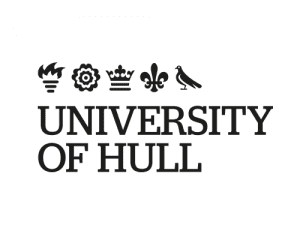This course offers students an opportunity to take part in an innovative course of study, enabling them to gain the knowledge and skills required to work as a highly ethical, integrative practitioner in the counselling professions. Students will learn how to integrate different counselling models and how to tailor them to meet clients’ unique needs.
Cognitive behavioural and solution focused approaches will be integrated within a wide theory base, which will include systemic, psychodynamic and humanistic concepts. The three year full time course will equip students to work as clinical practitioners in a variety of settings, face to face, on the phone and online, the content having been specifically selected to meet needs of newly qualified counsellors who will encounter a cost conscious and evidence based approach to counselling delivery.
This course aims
• To develop a critical understanding of theoretical approaches and their application
• To develop an enhanced understanding of complex practice issues
• To enhance practitioners’ professional skills
• To gain academic competence and enhance research skills
• To enable students to develop and apply reflexivity in its multiple contexts
• To enhance employability in a variety of sectors
Key Information
Year one
The first year will concentrate on teaching students’ common factors in counselling (including the therapeutic relationship), exploring the principles of the therapeutic relationship and introducing a variety of theoretical models. Ethics and safeguarding will be taught, and students will be encouraged to develop self-awareness and reflexivity. Role play and practice skills will be a feature to prepare students to work with clients from the second year onwards.
– Module 1 Common Factors
– Module 2 The Therapeutic Relationship
– Module 3 Theoretical Principles
– Module 4 Attachment and Loss
– Module 5 Ethical Practice
– Module 6 The Self of the Counsellor
Year two
The second year will build on the knowledge gained in year 1, target more specific client presentations and incorporate a supervised clinical practice element in a recognised placement (50 hours). Students will have the opportunity to approach counselling and therapeutic theories from different perspectives and link concepts to practice in a reflexive, free flowing manner. Specific modules will be dedicated to research, clinical supervision and difference and diversity. Module 12 will be dedicated to supervised clinical practice in the placement centre.
– Module 7 CBT Principles
– Module 8 Research Principles
– Module 9 Supervision and Practice Principles
– Module 10 Further Theoretical Principles
– Module 11 Diversity and Difference
– Module 12 Clinical Practice
Final year
Year three will offer a series of modules, such as working with specific client bases and problems. It will provide theoretical support and assistance in accurate decision making and treatment planning. The approach is concentrated on utilising the clients’ own resources and capabilities to solve issues and promote self-awareness, self-worth and self-confidence.
Module 17 will run through the year and feature a reflexive dissertation based on clinical practice, enabling students to showcase their integration of theories into clinical practice. Students who successfully complete year 3 (including a minimum of 100 hours of supervised clinical practice) will be awarded a BA (Hons) degree in Contemporary Relational Counselling.
– Module 13 Working with Complex Presentations
– Module 14 Relational Research
– Module 15 Challenges in Relational Counselling
– Module 16 Further Challenges in Relational Counselling
– Module 17 Reflexive Clinical Practice
All modules are subject to availability and this list may change at any time
Assessment methods include:
– Peer assessed role plays
– Case Studies
– Case presentations
– Theory based written assignments
– Production of documentation for clients (flyers, website information)
– Research projects
– Portfolio (informed by learning journal kept throughout the course)
– Reflexive critical response to learning and practice
Entry requirements for this course are one of the following:
– 80 UCAS tariff points
– Access to HE Diploma in a related course with at least 45 credits at Level 3
– Accreditation of Prior Learning (APL)
Additionally, students are required to have
– GCSE English language
– Basic counselling skills at Level 2 or equivalent
– Competence in the use of IT and regular access to the Internet
As part of this programme of study you will be required to have a valid enhanced Disclosure and Barring Service (DBS) check. You will be required to pay the cost of this. A DBS must be in place before you start your placement. You may be able to supply an existing DBS but this must be within 3 years of issue.
Successful completion enables progression to higher study, for example a Masters in Contemporary Relationship Studies and an MSc in Contemporary Psychosexual Therapy.
Financial Support
UK students can take out a tuition fee loan to cover the cost of their course and a maintenance loan to cover living costs.
We also have a range of other financial support available.
Course Fees
UK
Full Time – £7940 PA
Additional Costs
Your Tuition fees cover the majority of costs associated with your course (including registration, tuition and assessment.)
There may be some extra costs that you might need to make, or choose to pay, for example:
• Books (you’ll have access to books from your module reading lists in the HE library, but you may want to buy your own copies)
• Printing and photocopying
• Trips and enhancement opportunities
- A DBS check will be required, which you must pay for.
Apply or enquire about this course
To find out more and apply for this course, please contact us via the telephone number below.
- Course code: B900
- Institution code: N64
- Campus name: University Campus Doncaster
- Campus code: D
Apply on the UCAS website Make an enquiry Call 0800 358 7474
